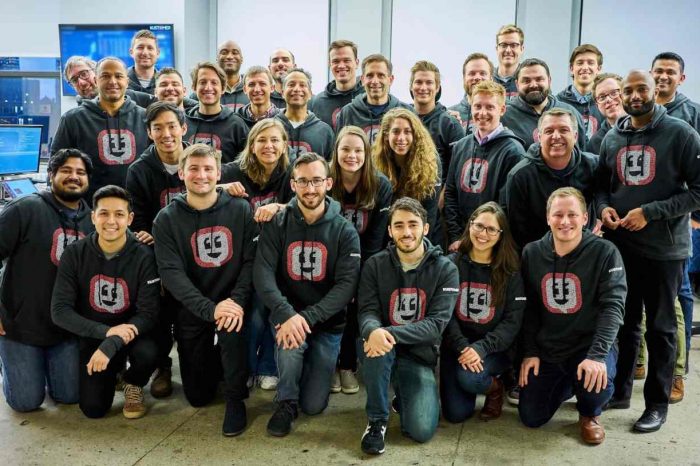Top tech startup news stories you need to know this Friday, June 15

Good morning! Here are some of the top tech startup news stories for today, Friday, June 15.
Cryptocurrency Ether soars 9% after SEC official says it’s not a security. Ether, the world’s second largest cryptocurrency, jumped about 9 percent Thursday after a key official from U.S. Securities and Exchange Commission (SEC) made it clear that it is not a security. Ether and other cryptocurrencies have maintained that they are not securities, and this was the first public SEC statement on ether’s status specifically. “We don’t see a lot of value in seeing ether as a security,” William Hinman, head of the Division of Corporate Finance for the SEC, said at the Yahoo All Markets Summit: Crypto conference in San Francisco. Ether is a form of payment made by the clients of the platform to the machines executing the requested operations.
This father with a struggling son launched a startup that now serves 90% of classrooms. Newsela is a 5-year old education startup that help struggling students learn how to read. The startup rewrites news articles, historical speeches and scientific papers for students at different reading levels to help them learn to read. The inspiration for Newsela came as a way for Matthew Gross, founder and CEO, to help his second-grade son who was struggling to read at the time. Newsela serves 90% of classrooms.
Hipcamp raises $9.5 million for campsite booking. Hipcamp, a 28-person company booking site for camping experiences, raised $9.5 million in Series A funding. The funding was led by Benchmark with particiapation from other investors including, Affirm co-founder Max Levchin and former Twitter CEO Dick Costol. It is unclear how much is equity and how much is convertible debt or other types of financing.
Social intelligence startup Influential raises $12 million to take its AI SaaS platform to market. Influential, the social intelligence startup has raised a $12 million Series B financing round to take the its AI SaaS platform to market. The current round was led by existing investors, Capital Zed and Europlay Capitol Advisors, with participation from WME. The new funding brings the total capital raised to $26.5 million, since the company’s inception in 2013.
AI startup CooconCam launches $150 smart baby monitor uses AI to reassure you that your baby is breathing. AI startup, CooconCam, has launched a $150 AI-based baby monitor with secure HD video and real-time breathing monitoring. Unlike traditional baby monitors that let you see your baby, but not whether she’s breathing. CooconCam Plus helps parent view a real time breathing wave on top of the live stream video anytime their baby is sleeping.
Cryptocurrency startup AlphaPoint raises $15 million from Novogratz’s Galaxy Digital. Galaxy Digital LP, a digital assets merchant bank founded by billionaire investor Mike Novogratz, has invested $15 million invested AlphaPoint. The startup powers digital asset networks and provides institutions a Distributed Ledger Platform to digitize, trade and manage any asset.
Self-driving startup RideOS raises $9 million. RideOS has raised $9 million in funding led by venture firm Sequoia Capital and reached a partnership with a division of Ford Motor Co, the company announced Friday. Started by two former Uber Technologies Inc. employees, RideOS plans to sell software that gives routes and other dispatching instructions to fleets of autonomous cars. Add RideOS to a mounting list of companies competing to create markets around the nascent technology, which continues to reel in investment.
Insurtech startup Sure App. launches insurance for Uber, Lyft passengers. Startup Sure, a mobile app that allows you to purchase insurance when you want it, and where you want it, announced Thursday that it has partnered with underwriter Chubb to launch a new service called RideSafe that allows passengers to buy accidental medical, death and dismemberment insurance coverage for the ride. Ride-hailing companies typically provide liability insurance coverage for U.S. drivers that would cover passengers in an accident. Uber and Lyft, for example, both provide $1 million of liability insurance, which would cover bodily injury and property damage for the driver, passenger and anyone else involved in a potential accident. But Sure CEO Wayne Slavin said the ride-hailing company policies have strict guidelines as to when they take effect and in what situation they are applied.

